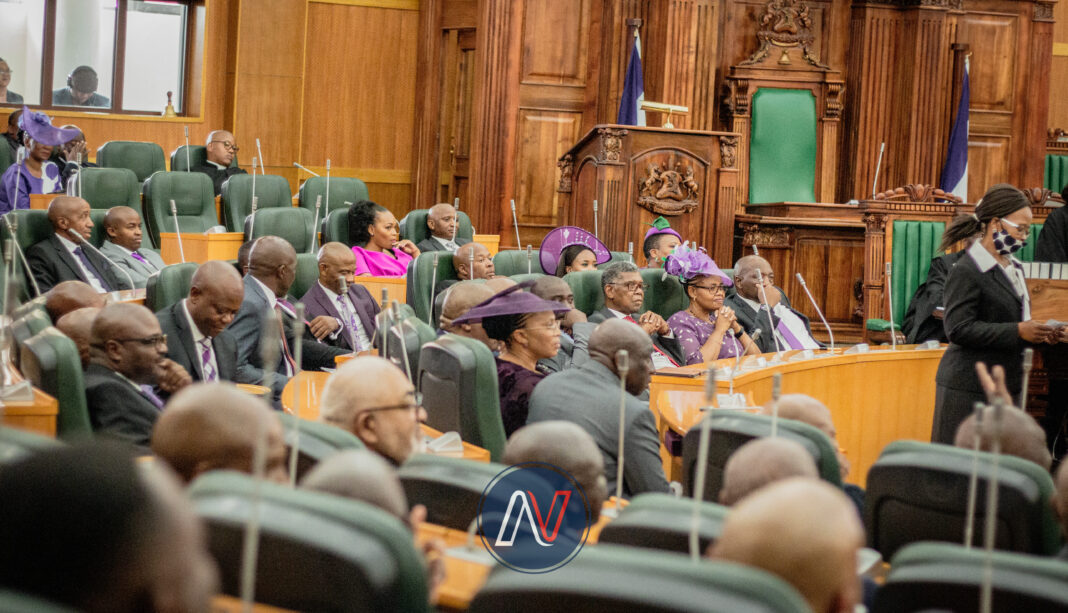Motsamai Mokotjo
The proper functioning of democratic institutions relies on a set of rules and regulations that ensure fair and transparent decision-making processes. In parliamentary systems, the Standing Orders are essential guidelines that dictate the conduct and responsibilities of Members of Parliament (MPs).
Unfortunately, there is a worrying trend in Lesotho where MPs neglect to familiarize themselves with the Standing Orders, leading to numerous dangers that threaten the integrity and effectiveness of parliamentary governance. In this opinion piece, I will discuss the grave consequences that arise from MPs disregarding the importance of understanding these essential guidelines.
This issue came to light during last week’s debate when it was brought to attention that, according to Standing Order number 27, the prime minister can be questioned “without noticeâ€.
The Revolutionary for Prosperity (RFP) legislators promptly emphasized that Standing Order number 24, which pertains to questions directed at ministers, should be considered in conjunction with Standing Order number 27.
However, it became apparent that many MPs are not well-acquainted with the rules of the House, leading to significant and potentially dire consequences, which will be discussed in detail below.
The discrepancy between Standing Order number 27 and Standing Order number 24 sparked a heated debate among lawmakers. The RFP legislators argued that, in order to ensure transparency and accountability, the prime minister should be subjected to the same questioning procedures as other ministers.
They believed that Standing Order number 27 should not be interpreted in isolation but should be read in conjunction with Standing Order number 24, which establishes a framework for questioning ministers.
The lack of familiarity with the rules of the House among MPs is a matter of concern. It highlights a broader issue of inadequate preparation and understanding of parliamentary procedures. When MPs are unaware of the specific rules and orders that govern their conduct, it can lead to confusion, inconsistency, and a breakdown in the functioning of democratic processes.
The consequences of such unfamiliarity can be dire. For instance, if MPs are unaware of the rules governing the questioning of the Prime Minister “without noticeâ€, it could lead to a disorganized and unstructured session. Legislators might fail to address critical issues promptly or miss the opportunity to hold the Prime Minister accountable for their actions or policies.
This lack of preparedness could undermine the effectiveness and integrity of parliamentary debates and hinder the democratic principles upon which the legislative body is built.
One of the primary dangers of MPs neglecting the Standing Orders is the erosion of legislative effectiveness. These orders provide a comprehensive manual that outlines the procedures and protocols for enacting laws and conducting parliamentary business.
Failing to grasp these guidelines hampers an MP’s ability to actively participate in debates, propose amendments, or effectively scrutinize legislation. As a result, this undermines the democratic process and compromises the quality and legitimacy of the laws enacted.
Another danger is the weakening of parliamentary democracy itself. Parliamentary democracy relies on robust checks and balances to prevent the abuse of power. The Standing Orders play a crucial role in upholding these checks by outlining processes such as question time, committee hearings, and voting procedures.
MPs who are unfamiliar with these rules risk weakening the democratic fabric of their nation, making it susceptible to potential manipulation or subversion of parliamentary procedures. Such actions erode public trust in the democratic system and create opportunities for undue influence and corruption.
Neglecting the Standing Orders can also lead to disruptions in parliamentary proceedings. Parliamentary debates require a structured and orderly environment to facilitate meaningful discussions and decision-making.
Ignorance of the Standing Orders may cause MPs to inadvertently violate parliamentary decorum or engage in disruptive behaviour, obstructing the legislative process and impeding the efficient functioning of Parliament. This wastes valuable time and diminishes the reputation and credibility of the institution.
Furthermore, a lack of familiarity with the Standing Orders diminishes accountability. These guidelines outline mechanisms for holding MPs accountable for their actions and statements. Without a thorough understanding of these rules, MPs may evade scrutiny and escape consequences for their behaviour.
This failure to adhere to the guidelines results in a lack of transparency and a decline in ethical standards within the parliamentary framework. Consequently, the erosion of accountability undermines the public’s faith in Parliament’s ability to effectively represent their interests.
The trust and confidence of the public form the basis of legitimacy for parliamentary institutions. When MPs disregard the Standing Orders, it creates a perception of negligence and incompetence among the electorate.
Public confidence in the ability of MPs to govern responsibly and make informed decisions deteriorates, further eroding trust in the democratic process. This loss of faith can lead to apathy, disillusionment, and even political unrest.
The failure of MPs to read the Standing Orders can be seen as a mockery to citizens. Points of order were originally intended to ensure the fair and orderly conduct of parliamentary proceedings by allowing MPs to raise concerns about procedural irregularities or breaches of the rules.
However, when overused, MPs exploit this tool to disrupt debates, derail discussions, and divert attention from substantive issues. This tactical manoeuvring stifles productive discourse, inhibits the exchange of ideas, and prevents the exploration of crucial policy matters, ultimately impeding the progress of meaningful debates.
The excessive use of points of order can result in significant time wastage during parliamentary sessions. Each point of order requires the Speaker or presiding officer to make a ruling or provide clarification, interrupting the flow of the debate.
With an increasing number of points of order being raised, valuable time that should be dedicated to addressing important legislative matters is squandered on procedural technicalities. This misuse of time not only undermines the efficiency of the legislative process but also reflects poorly on the responsible MPs, who are perceived as prioritizing political posturing over substantive issues.
It is against such that one remembers that “reading is to the mind what exercise is to the bodyâ€, as Richard Steele noted. Read the Standing Orders!




